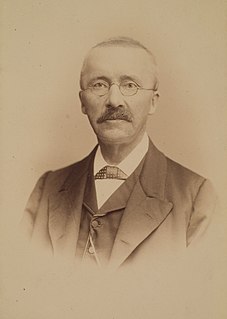A Quote by George Santayana
Historical investigation has for its aim to fix the order and character of events throughout past time and in all places. The task is frankly superhuman.
Quote Topics
Related Quotes
Within a single scene, it seems to be unwise to have access to the inner reflections of more than one character. The reader generally needs a single character as the means of perception, as the character to whom the events are happening, as the character with whom he is to empathize in order to have the events of the writing happen to him.
We must stitch up what has been torn apart, render justice imaginable in the world which is so obviously unjust, make happiness meaningful for nations poisoned by the misery of this century. Naturally, it is a superhuman task. But tasks are called superhuman when men take a long time to complete them, that is all.
I don't believe there's anything in life you can't go back and fix. The ancient Vedas - the oldest Hindu philosophy - and modern science agree that time is an illusion. If that's true, there's no such thing as a past or a future - it's all one huge now. So what you fix now affects the past and the future.







































